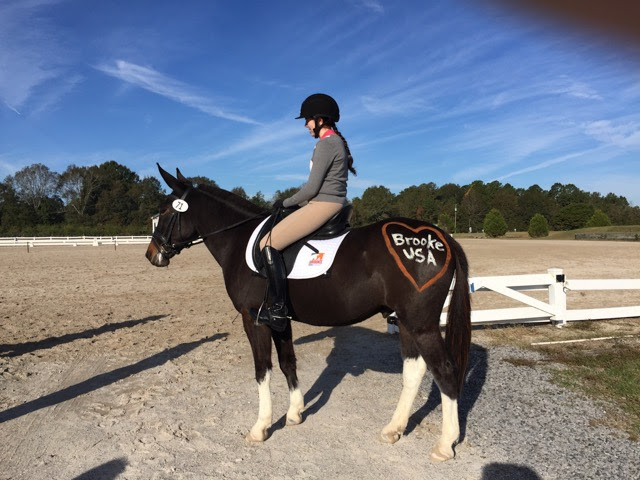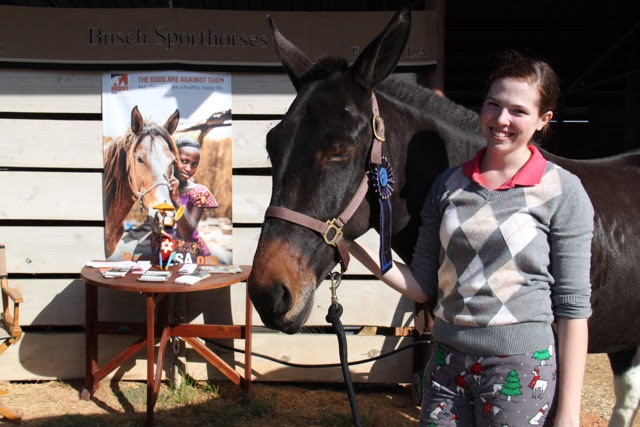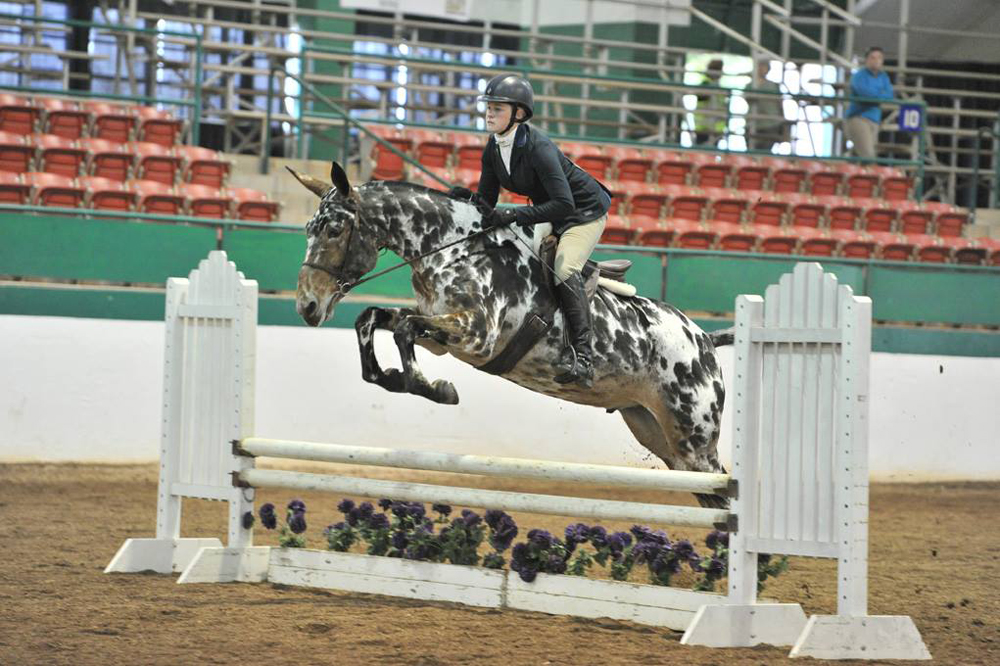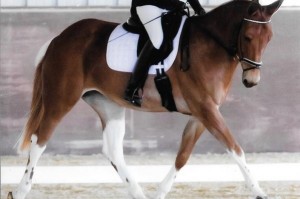The following post comes from Steve Edwards of Queen Valley Mule Ranch. Working with equines can be a rewarding and life-changing experience, but, as with all animal-related activities, accidents can happen. However, exorbitant insurance rates are currently threatening trainers’ ability to provide clinics for equine owners, forcing them to cancel or drastically limit these sessions due to cost. Steve is one such trainer, and below he discusses his experiences with insurance companies, coming to the conclusion that his only option moving forward may be to forgo future clinics.
I recently received a letter from the State of Arizona. It seems that working with equine livestock and with people in a clinic setting represents the same degree of professional risk as being a police officer of a fire fighter. In light of this, insurance through the State Insurance Fund is no longer available to me for my professional work. I am sure this is related to claims analysis and the like, but it sure puts a different spin on how I will proceed with my work!
Over the years I have been in a expert witness for cases involving equine accidents. I will give you overview of one of the cases to which I contributed.
A Court Case I Was an Expert Witness For
The case involved two women who had been very good friends for over 30 years . One lived in California the other in Arizona . The woman from California drove to Arizona to a nice horse facility with corrals, RV parking lots of trails to ride t meet up with her friend. One lady rode a mule the other rode a horse, The mule was a fine trail mule but had one problem: the mule was very difficult to put in the trailer. After a wonderful week of riding and after enjoying each other’s company riding together as they had for over 30 years, the incident occurred.
On the morning the ladies decided to head home, the lady with the mule started to load the mule into the trailer. Her friend chose to hide behind the truck and trailer peeking around the corner. Yes, the mule was once again giving the owner a hard time not wanting to load in the trailer.
A person watching the lady load the mule came over to help. She started waving her arms to get the mule to go in the trailer. So at this point, there is the person who owns the mule trying to load it, and a “helper” waving her arms to try to encourage the mule to go forward onto the trailer. It is likely that many of us have seen this very same scenario and we may have even participated in this task. But long story short, the mule started pulling the lady away from the trailer pulling her backwards and despite her efforts, the mule backed over the friend who was hiding between the truck and the trailer.
Does Your State Protect You? Mine Does
In most states, there are State laws that are there to protect the equine owner in such cases. Arizona has such a law. Being in the business, I post signs reflecting this all over my ranch. From the gate to the corrals I have these notices and I think everyone should do the same, even if you just keep your animals for your own use.
You may be interested in rest of the story. The lady that the mule backed over went through several months in the hospital and several years of physical therapy, She did not sued for damages but the insurance company did, and in the lawsuit the person helping load the mule who was waving her arms, the owner of the stable, and the lady who owned the mule all had to pay portions of the award either by their insurance or by their pocketbook.
It is pretty clear that no matter what the State laws say or what insurance you might have (home owners or otherwise), suits are likely to result in damages that any participant may have to pay. Even if you only had to pay 1% of a one million dollar claim, that still amounts to $10,000.
Why This Is My Last Clinic
Finding insurance for the equine trainer or owner is very difficult especially when you are training equines and people. I am sad to say that my insurance just tripled in price due to the “risky occupation”. Even though I have never been hurt, nor has anyone in any of my clinics or training sessions that have spanned 25 years or more, the rate is truly unreasonable. So to make a long story short, there is a very good possibility that this will be my last year for training mules, donkeys or people because of the expense of trying to cover my butt.
I love training. I love seeing people try my training techniques and I especially like witnessing the mule and donkey owners use these techniques that make dramatic changes in their animals. But as the world changes we must change. Now I’m sure that there’s always going to be people that will train without insurance. Some have nothing to lose and some just flat don’t care. When you are looking for a trainer, there is so much more to it than just climbing on the mule and riding. There is more to it than just putting the donkey to the cart. Finding a true professional trainer is very difficult. I hear from many people who have had mules trained and have had nothing but problems. I can tell you this is not always the mule and donkey at fault. When I used to take a mule with me on the circuit, I would have someone climb on the mule and ride it. Just before this I would do the demonstrating of turn on the forehand, turn on the hindquarters side passing. Then I would ask the audience who has been riding for 25 years. Hands would go up and I would choose someone to ride the mule that I just rode. In a matter of minutes, it would look like the mule was not even broke!
I was talking with Dr. Robert Miller one day and we were saying how much of a joy it was to contribute to the equine community, not just the United States but all over the world. Dr. Miller has traveled to more countries than I have, but we both enjoy seeing the equine community changed for the good. But we both noted with sorrow that the cost of being a professional trainer and teacher is a rapidly growing concern. It will change the future of the industry for sure and not necessarily in a good way.
Are You The Person I’m Looking For?
I would be interested in feedback from attorneys and insurance adjusters. Please give me a call (602-999-6853) or e-mail me, here. I want to stay in business but as it goes right now my last clinic will be in Fredericksburg, Missouri and I will head back to the ranch because that is all I can afford for insurance for the year.
This has become a very litigious society for sure. I am not sure who can do anything about the fact that some people refuse to accept responsibility for their actions. It is not always someone else’s fault that an animal exercises its own will or that the student does not do as he or she is directed. There is inherent risk in riding an animal. We can do a lot to try to limit our risk. We can train well. We can follow instructions. And when we feel that something might not work out for us, we can just say “no”! But ultimately, it is one’s own decision to come work with an animal. If you are working with a professional trainer or teacher, you may be somewhat safer. But when we hear a little inner voice saying “don’t do it”, we should probably listen.
Something You May Not Want to Hear
One other point I would make is that there are times when a professional trainer may suggest to a student that the animal that he or she has may not be the best choice for that person. When I say this, I may see tears from some. I may hear others say, “well that is why we are here – so you can make this work”. Still others will take the information and agree. But know that such advice is not given lightly and is only given after I have had time to observe the animal, observe you, and observe the two of you together. Some things can be fixed. Others are more difficult. A few are impossible. The comment is never meant to be mean or ill spirited. It is for everyone’s safety. Any trainer worth his salt will tell a student if there is clearly a mismatch of animal and owner. But this is just one little piece of this new and bigger puzzle.
I encourage equestrians to accept the inherent risk of their activities and to let their local and state governments know that they do acknowledge that risk. If we cannot find a way to make professional trainers able to do their jobs while being covered reasonably with insurance for the job, we will see fewer quality trainers and have less help available to riders. Your professional trainer is a huge resource to you and your equine.
Please visit Steve’s website for the original post.



































